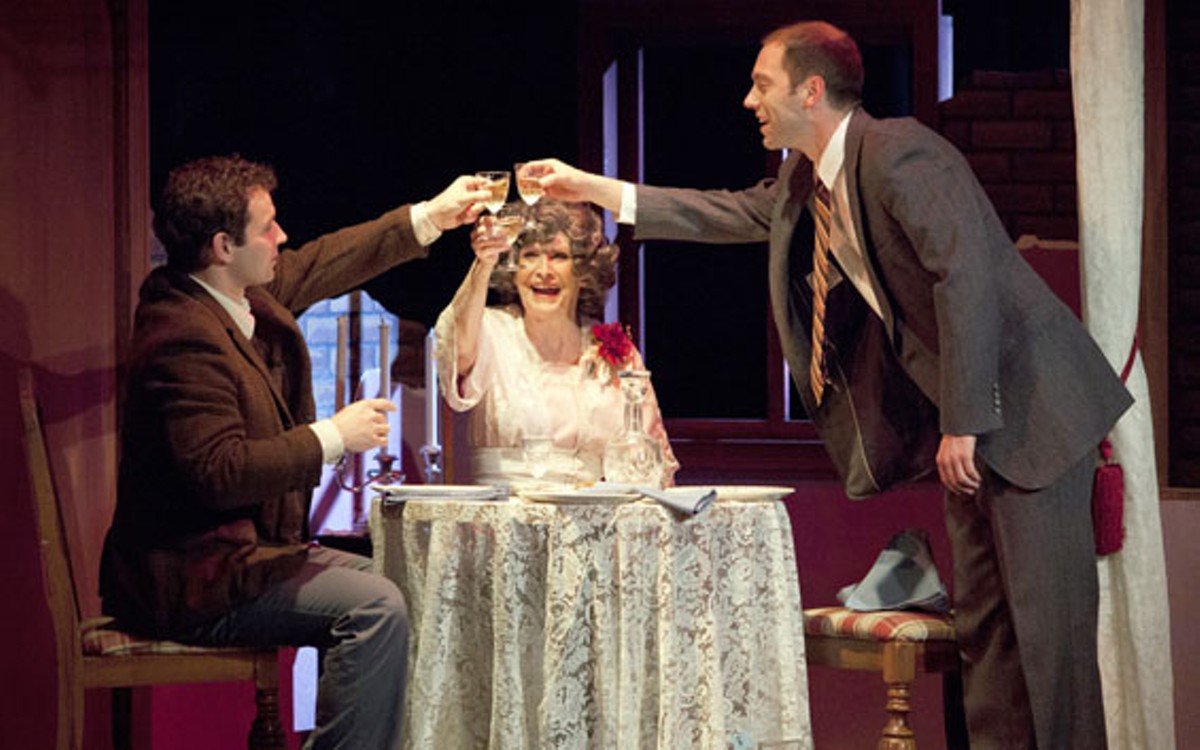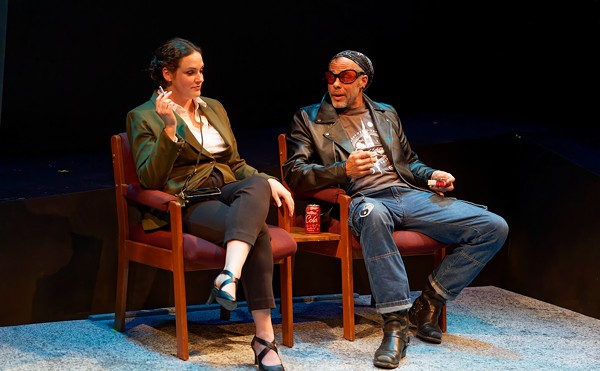Like an over-ardent gentleman caller, The Glass Menagerie is wooing St. Louis theatergoers from two directions. Tennessee Williams' elegiac account of the dysfunctional Wingfield family — the overbearing Amanda and her restless children, Tom and Laura — can be seen at Dramatic License Productions in Chesterfield and at the Missouri History Museum, courtesy of Insight Theatre Company. In the story, the acutely shy Laura only comes to life when playing with her collection of fragile glass animals. "If you breathe, it breaks," she warns her unsuspecting gentleman caller. But what we learn from these two productions is that the play itself is made of more resilient stuff. It can shine through widely varying interpretations.
The most immediate difference between the two productions is the scenic design. The constricted playing space at the Chesterfield Mall aptly conveys the shabby family apartment in Depression-era St. Louis, which son Tom describes as a "two-by-four situation." By stark contrast, the stage at the Missouri History Museum is so wide that the Wingfield abode looks downright homey. While this roomier apartment might not be true to Williams' description, it effectively solves the problem of filling the museum's capacious stage.
The productions also chose slightly different scripts. Dramatic License has opted for what is known as "the definitive text." Alterations begin with the very first sentence, which adds the word "Yes" to Tom's memorable opening line, "I have tricks in my pocket." Another pronounced change occurs late in Act One when family matriarch Amanda Wingfield tries to sell a magazine subscription over the phone. The customary version is a veritable three-act play (confidence, confusion, triumph) in one monologue. The "definitive" version feels truncated and lacks impact.
Rather like Tom Wingfield, who in his wanderings is more faithful to his sister Laura than he intended to be, Dramatic License director William Whitaker scrupulously follows the playwright's extensive stage directions, in some cases to a fault. The playwright, who felt The Glass Menagerie could be staged with "unusual freedom of convention," envisioned that complementary images and phrases should be projected onto a screen throughout the evening. Whitaker obliges, and the projections mostly serve to distract the viewer's eye from the action onstage.
While Whitaker strives to be true to Williams' every intent, Insight director Maggie Ryan is true to his text. Ryan understands that nearly every speech in The Glass Menagerie is either eloquent or resonant. This is a poet's play, and poetry requires time. Ryan purposely slows down the action in order to give the audience time to absorb what is said. Even though Ryan's staging runs fifteen minutes longer than Whitaker's, it feels shorter.
Both productions are highlighted by original moments, especially in the candlelit "gentleman caller" scene that introduces the reclusive Laura, who lives in a world of fantasy, to the visiting Jim O'Connor, an "emissary from a world of reality." There's a lovely moment at Dramatic License when Jim (Tom Lehmann) removes the gum from his mouth, so the idolatrous Laura (Macia Noorman) does too. At Insight, when Jim (Jordan Reinwald) looks at a glass unicorn and muses that the creatures are "extinct," Laura (Elise LaBarge) replies, "I know!" with such joyous enthusiasm that you can almost see a shroud-like cocoon falling from her shoulders. Also at Insight, when Laura tells her mother that Tom is trying to write, the indomitable Amanda (Tommy Nolan) shuffles across the stage muttering, "So he is, so he is," in the same rumbling manner that can be felt just before an earthquake tears the ground apart.
Despite their disparities, these two productions add up to one inescapable conclusion. The Glass Menagerie remains a timeless masterwork capable of wrenching a viewer's emotions. To see it again (and again) is to be reminded of Tennessee Williams' rare ability to infiltrate the inner chambers of the human heart.






